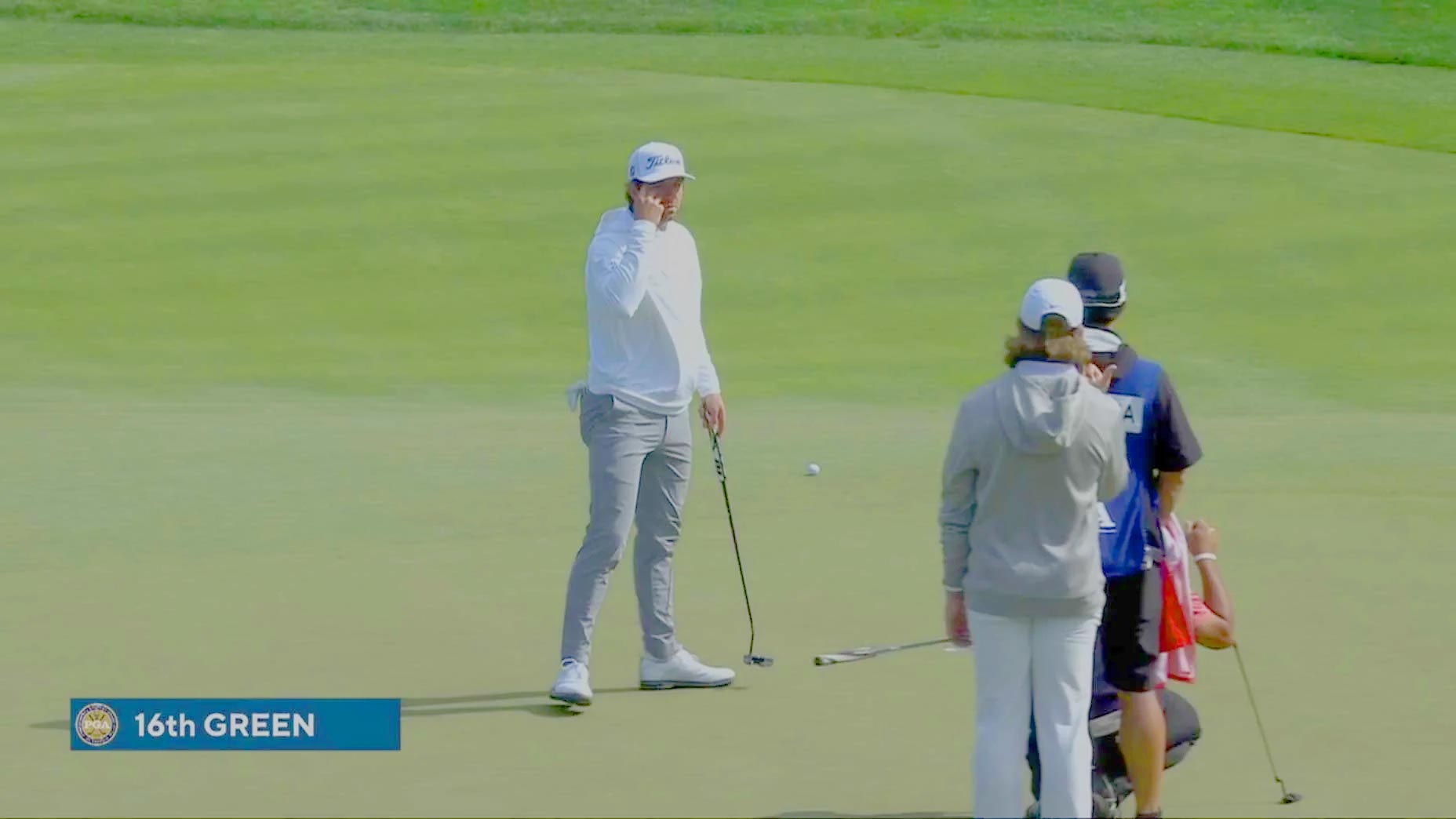ROCHESTER, N.Y. — A mistake that covered the length of a putter head was costly for Cameron Young.
The error came Friday during second-round play at the PGA Championship, when the world’s 15th-ranked player moved his ball mark on the 16th green at Oak Hill Country Club — then putted from the new spot. That’s a no-no. And a two-stroke penalty. His par became a double bogey.
From there, Young played five-over golf, finished with a five-over 75 and was expected to miss the cut with a nine-over, two-day total. According to the ESPN+ broadcast, Young was told of the infraction on the 5th hole, his 14th of the day after he started on the back nine.
“Ultimately that is a mental mistake,” analyst Scott Verplank said on the ESPN+ broadcast.
The sequence started after Young had hit his first putt on the 16th to 2 feet, 1 inch, which put him in the line of Tommy Fleetwood and Hideki Matsuyama, his playing partners. Fleetwood asked Young if he could move his mark. He did — the one putter head to the right. Fleetwood and Matsuyama then finished the hole.
And Young played from the new spot, which is an infraction of rule 15.3c. At just after noon ET, reporters were notified of the decision.
“During play of the 16th hole (the 7th hole of his round),” the release said, “Young putted up close to the hole and marked his ball. As his ball-marker was on the line of play of both Tommy Fleetwood and Hideki Matsuyama, he correctly moved his ball marker one clubhead length to the side. After the other players completed the hole, Young failed to move the ball marker back to its original position.
“As a result, when he replaced the ball and holed out, Young had played from a wrong place and incurred the general penalty (two-strokes) for breaching Rule 15.3.”
On the ESPN+ broadcast, on-course reporter Ned Michaels said Young’s dad, David — also the longtime pro at Sleepy Hollow Country Club in New York — called it a life lesson. Verplank, himself a longtime pro, also had a thought.
“It’s happened a number of times, but ultimately it’s a self-inflicted wound,” he said on the broadcast. “There’s a lot of ways to kind of remind yourself to move it back. You know, you say you mark your ball with a quarter, and if you always mark it heads-up, you kind of do that on purpose, so then if you have to move it, you flip it to where it’s tails-up, so that when you down there and you put your ball back, you go, hey, wait a minute, my coin’s tails-up now; it’s always heads-up.”
Notably, Tiger Woods has said he does the same move — ever since he almost committed the same mistake Young did. In the final of the 1996 U.S. Amateur, Woods had moved his mark and was about to putt from that spot — only for playing partner Steve Scott to tell him of the mistake.
“I did forget [to move my ball back],” Woods said. “For him to [remind me] was pretty remarkable. Ever since that one moment, I always mark my marker heads-up, and if I ever move my coin or someone asks me to move it, I always move it to tails, so when I look down at my ball if it’s showing tails, that means I moved it. That’s true sportsmanship [what Scott did]. A testament to what the game of golf is all about.”
